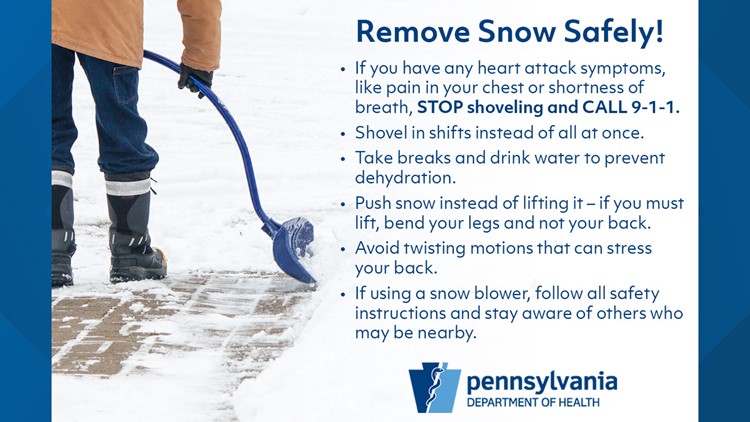Waking up to find a thick layer of crisp snow can be breathtaking.
Most people are not too enthused about the idea of shoveling snow, but there is an actual health reason to avoid it.
The burst of hard work can put some of us at a risk for a heart attack.
Doctors say the combination of snow and cold weather cause your arteries to spasm and constrict, leading to potentially harmful consequences.
“During the winter time, when patients are particularly shoveling snow, they have increased stress on the heart which can increase their blood pressure significantly," says Dr. Justin Lingel, a cardiologist for UPMC. "The cold weather can also result in constricting or tightening of blood vessels, and that together could increase their risk of having a heart attack."
Lingel says that as temperature drop during winter months, the death rates from circulatory problems and heart disease rise. There is a real reason to think that it may be connected to snow shoveling, particularly with sedentary patients.
“Their bodies might not be used to increased activity and shoveling snow can be very strenuous, particularly if it is wet, heavy snow or if it is a long or large driveway," Lingel says.
The problem with shoveling is that most if not all people approach shoveling with a burst of hard work, thus increasing their risk for a heart attack.
Experts say if you do plan on shoveling in the cold weather, staying warm is a priority.
“First you want to stay warm," says Lingel. "Also you don’t want to overdo it, you want to be aware of how you’re feeling.”
Don’t shovel large portions all at once, clear small areas at a time and take breaks if necessary, he adds.
Lingel says if you start feeling symptoms of a heart attack such as chest pain, shortness of breath, or lightheadedness, call 911 immediately.



